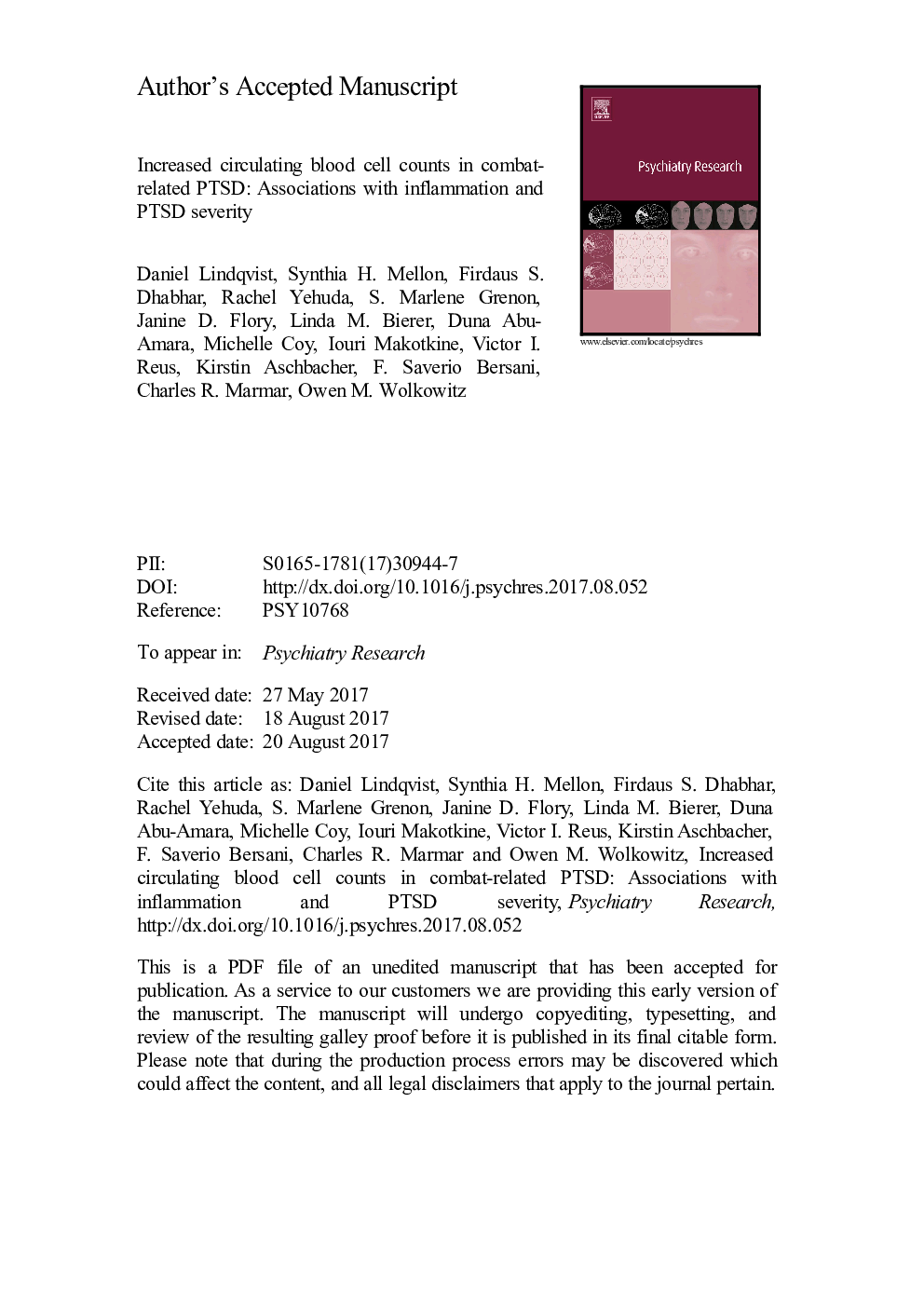| Article ID | Journal | Published Year | Pages | File Type |
|---|---|---|---|---|
| 6812122 | Psychiatry Research | 2017 | 33 Pages |
Abstract
Inflammation is reported in post-traumatic stress disorder (PTSD). Few studies have investigated circulating blood cells that may contribute to inflammation. We assessed circulating platelets, white blood cells (WBC) and red blood cells (RBC) in PTSD and assessed their relationship to inflammation and symptom severity. One-hundred and sixty-three male combat-exposed veterans (82 PTSD, 81 non-PTSD) had blood assessed for platelets, WBC, and RBC. Data were correlated with symptom severity and inflammation. All cell counts were significantly elevated in PTSD. There were small mediation effects of BMI and smoking on these relationships. After adjusting for these, the differences in WBC and RBC remained significant, while platelet count was at trend level. In all subjects, all of the cell counts correlated significantly with inflammation. Platelet count correlated with inflammation only in the PTSD subjects. Platelet count, but none of the other cell counts, was directly correlated with PTSD severity ratings in the PTSD group. Combat PTSD is associated with elevations in RBC, WBC, and platelets. Dysregulation of all three major lineages of hematopoietic cells in PTSD, as well as their significant correlation with inflammation, suggest clinical significance of these changes.
Keywords
Related Topics
Life Sciences
Neuroscience
Biological Psychiatry
Authors
Daniel Lindqvist, Synthia H. Mellon, Firdaus S. Dhabhar, Rachel Yehuda, S. Marlene Grenon, Janine D. Flory, Linda M. Bierer, Duna Abu-Amara, Michelle Coy, Iouri Makotkine, Victor I. Reus, Kirstin Aschbacher, F. Saverio Bersani, Charles R. Marmar,
